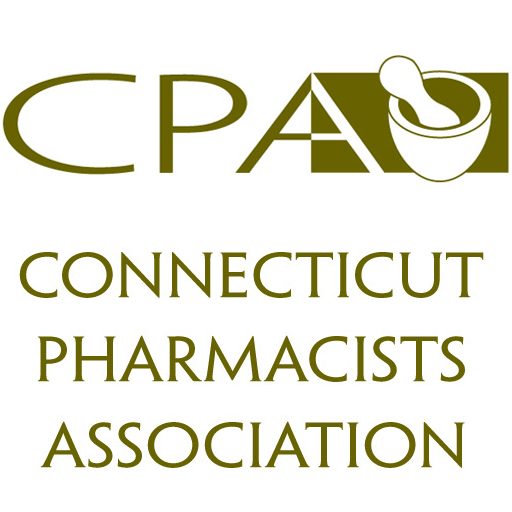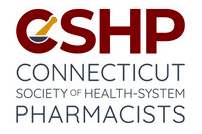The 2022 New England Pharmacist Well Being & Emotional Health Symposium is back as a live, in-person event...on the water!
Thursday, October 6
9 AM-1 PM
REGISTER HERE
The 2022 Well Being Symposium will return as a fully live event at the beautiful Inn at Mystic! Join your colleagues from across multiple practice settings and career stages to learn and discuss a variety of issues surrounding the well being and resilience of the pharmacy workforce-from combatting racial bias to understanding your legal rights in the workplace to building resilience for pharmacy residents and students.
REGISTRATION COSTS:
$99: RISHP MEMBER
$49: PHARMACY RESIDENT/TECHNICIAN
$29: PHARMACY STUDENT
Please note: all attendees will be required to be fully vaccinated against COVID-19.
PRELIMINARY AGENDA
9 AM Breakfast and Session 1: Diversity and Racial Bias
Chinenye Anyanwu, PharmD, MPH, Assistant Clinical Professor, UConn School of Pharmacy
Objectives TBD
10:05 AM Session 2: Panel Discussion: How Can Preceptors Help Pharmacy Residents and Students Achieve Resilience?
Panelists: Kristin Waters, PharmD, BCPS, BCPP, Assistant Clinical Professor, UConn School of Pharmacy; Nichole Stark, PharmD, BCPP, Clinical Pharmacist Practitioner in Mental Health, Providence VA Medical Center; Jennifer Luciano, PharmD, RPh, Director of Experiential Education, UConn School of Pharmacy
Moderator: Teresa Papstein, RPh, BCNSP, MHA, Director of Pharmacy, Yale New Haven Health, Bridgeport, Greenwich & Milford, CT
0106-9999-22-081-L04-P/T (0.75 contact hour; 0.075 CEU-Knowledge-based)
Objectives for Pharmacists and Pharmacy Technicians:
1. Define resilience and discuss how resilience plays a role in preventing burnout in pharmacy residents and students.
2. Describe current challenges and opportunities that preceptors encounter when preventing burnout for pharmacy residents and students.
3. Discuss strategies that preceptors can utilize to build resilience for pharmacy residents and students.
4. Discuss the role that schools and colleges of pharmacy play in helping preceptors create a culture of wellness and resilience in pharmacy education.
10:50-11:10 AM: Break & Meditation Activity led by Amy St. Amand, PharmD, BCPS, BCACP, PACT Clinical Pharmacist Practitioner, VISN1 Clinical Resource Hub (CRH), VA Connecticut Healthcare System
11:10 AM-1:00 PM Session 3: Self-Advocacy & Legal Rights in the Workplace (2-part segment):
11:10 AM-11:55 AM Session A: Setting Boundaries-A Strategy for Well-Being and Resilience
Anna Legreid Dopp, PharmD, CPHQ, Senior Director, Clinical Guidelines and Quality Improvement, Center on Medication Safety and Quality, ASHP
0106-9999-22-079-L99-P/T (0.75 contact hour; 0.075 CEU-Knowledge-based)
Objectives for Pharmacists and Pharmacy Technicians:
1. Explain the importance of setting boundaries as a strategy for well-being and resilience.
2. Define personal and professional boundaries.
3. List approaches for developing and sustaining boundaries.
4. Discuss opportunities to support personal and professional boundaries of colleagues.
5. Identify resources to support well-being and resilience.
12:00 PM-1:00 PM Session B: Law CE: Recent Trends in Pharmacists' Rights and Workplace Conditions
Jennifer Osowiecki, RPh, JD, Attorney, Cox & Osowiecki, LLC
0106-9999-22-075-L03-P/T (1 contact hour; 0.1 CEU-Knowledge-based)
Objectives for Pharmacists and Pharmacy Technicians:
1. Describe at least one national trade association's efforts to identify and measure pharmacist workplace conditions and pharmacist well-being.
2. Articulate the relationship between a pharmacist's risk for high distress´(as measured by the Mayo Clinic's Well-Being Index for Pharmacy Personnel" self-assessment tool) and the risks for the following: low quality of life, burnout, high fatigue, and medication errors.
3. Identify resources for reporting positive and negative workplace concerns, and their connection to patient safety.
4. Discuss both positive and negative consequences of various attempts to change pharmacist workplace conditions.
5. List five types of hazards that may harm to individuals who work in pharmacy settings.
6. Identify specific types of comments or actions that contribute to a hostile work environment.
7. Relate examples of recent regulatory actions and lawsuits involving employee pharmacists' rights and workplace conditions
 The Connecticut Pharmacists Association is accredited by the Accreditation Council for Pharmacy Education as a provider of continuing pharmacy education. Pharmacists and pharmacy technicians in attendance who complete an evaluation will receive up to 3.50 contact hours of CPE credit (0.350 CEUs) for this knowledge-based program. Statements of credit will be uploaded to CPE monitor on the NABP website, where you can print your credits for your profile.
The Connecticut Pharmacists Association is accredited by the Accreditation Council for Pharmacy Education as a provider of continuing pharmacy education. Pharmacists and pharmacy technicians in attendance who complete an evaluation will receive up to 3.50 contact hours of CPE credit (0.350 CEUs) for this knowledge-based program. Statements of credit will be uploaded to CPE monitor on the NABP website, where you can print your credits for your profile.
The New England Pharmacists Well Being & Emotional Health Symposium is presented by




